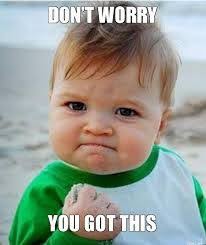 There’s something that is your biggest ally and at the same time, your biggest enemy in your VO career. To find this resource/obstacle, go into your bathroom and look in the mirror.
There’s something that is your biggest ally and at the same time, your biggest enemy in your VO career. To find this resource/obstacle, go into your bathroom and look in the mirror.
There it is: YOU! You have all the tools you need—maybe not completely trained, honed, and ready to use—but you’ve got them, and you can learn how to use them through practice, practice, practice.
But you also have all the tools and means to slow yourself down, get in your own way, and not allow yourself to shine.
I’ve heard it a lot: “Oh, I just can’t… (fill in the blank) OR, “I just can’t do it in that booth, but at home I’m awesome,” OR “That’s a great idea, I should do that, but my cat needs a new bed.”
Self doubt, self consciousness, distractions. These are among the many ways we let ourselves fail. To me, that failure is a choice.
But, wait a second. You’re not just sitting at home dreaming. You’re HERE, you’re in a class at The Voice Actors Studio. You’ve come in through the door! You stepped up to the mic and opened your mouth. That’s a win! That’s also a choice.
You’re now discovering that voiceover is more than “having a nice voice.” It’s about what you DO with that nice voice. It’s about you learning, and learning is about change. New muscles get used, new ideas start reorganizing how you thought the world worked. And, let’s face it, that can be disorienting and even frightening. No shame in that; it’s part of being human, part of the process, part of the journey.
We—your voiceover colleagues—are on that journey, too. I’m still learning, still reorganizing our ideas of how it all works. As for me, when I stop learning, stop changing—my VO career will be over.
OK, so you’ve got some doubts, feel some nerves. What to do? FOCUS. You’re training to be a voice actor. And what’s a voice actor do? A voice actors focuses—on the copy; on the meaning and emotion in the script, the ad, the book; on acting. Voice actors then employ all our tools, from the tips of our toes to the tops of our heads to tell a story.
Your job is to tell us a story from those written words in your copy. Connect with the underlying emotion, the “subtext” below the words. And then we turn that connection into speech and grab our listeners—because you make the story, and the emotion you’ve given it—compelling for those listeners.
That may mean you have direction and copy that describes a character. Maybe the description is a few words about a person mowing the lawn. Maybe you have words and a picture of a monster coming out of a cave. Or maybe you just have the words of the copy with no direction and you need to supply an attitude, a life for the person who is about to say those words.
What just happened that I’m reacting to? Why am I speaking now? Who am I speaking to? What do I want?
Busy yourself with finding SPECIFIC answers to these acting questions.
Fill your time with the WORK of acting…and then you’ll realize that there’s no time for self doubt, self consciousness, or distractions—you’re too busy!
Focus on the task, on the acting. Bring your considerable talents and intelligence to the moment. And then let that image in the mirror, that one standing in your way, go from obstacle to professional!